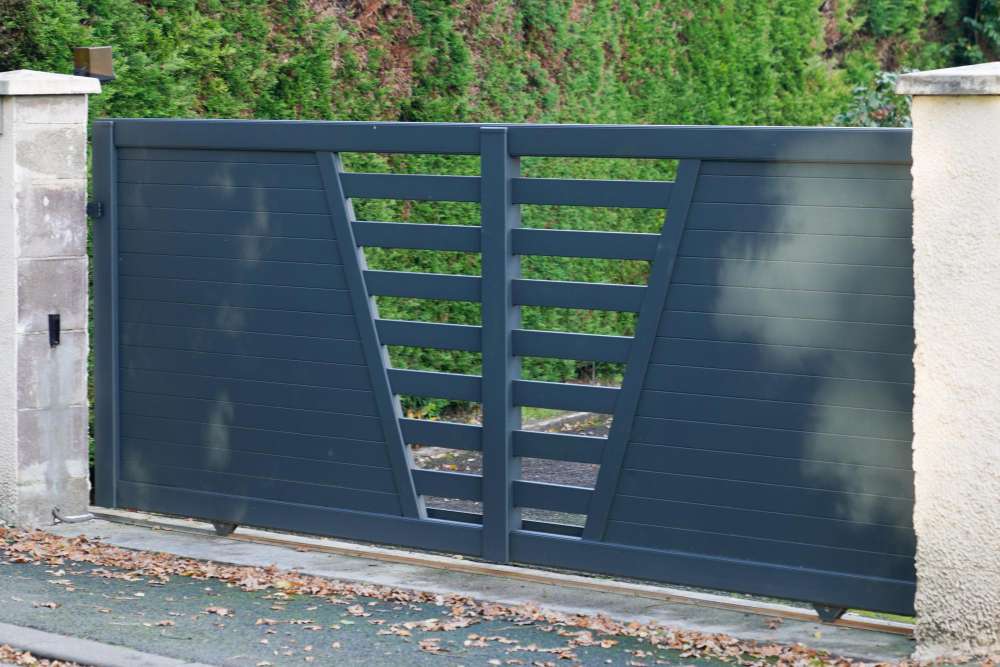Farm gates are more than just barriers; they are the unsung heroes of any farm, quietly safeguarding its every corner. In agriculture, where functionality meets durability, understanding the essentials of these gates is paramount. From allowing smooth human access with bow gates to ensuring livestock safety with specialized gates, their diversity is astounding. But it doesn’t stop there; the protective coating on these gates, whether through pre-galvanizing or hot-dip galvanizing, is essential for their longevity.
How you install them, with hinge bolts or wall plate hinges, can make all the difference. Regarding security and ease of use, the choice between ring and hook, spring catch or slider mechanisms matters. So, let’s delve into the world of farm gates and uncover the keys to their enduring performance, focusing on metal farm gates.

Gateway To Functionality: Exploring Gate Types
Bow Gates: Think of bow gates like a small door in a big gate. They’re made for people to walk through, so they don’t have to climb over the larger metal farm gate. That keeps the big gate from getting damaged. These gates are taller in the pedestrian part than the rest of the gate.
- Livestock Access Gates: These gates are about keeping animals where they should be. You can choose from lighter or sturdier metal, depending on your animals and what you need the gate to do.
- Specialized Livestock Gates: There are gates made just for cattle. They’re strong enough to handle cows pushing against them and made from a mix of pipes and flat steel. Then there are gates for sheep, which use a special wire to keep them safe.
- Field Gates: You’d use these at the entrance to a field or across your farm roads. You can choose how thick the frame should be based on how often you’ll use the gate. Thicker frames are for gates you’ll use a lot.
Covering Essentials: Frame Protection Options
The type of covering on your metal farm gates is important. It affects how long they’ll last.
- Pre-galvanized Steel: This is a protective coating put on the steel at the factory. It helps keep the gate from getting rusty and worn out.
- Hot-Dip Galvanising (HDG): If your farm is in a place that gets a lot of rust, this is a good choice. They make the gate first, then dip it in a special solution to protect it from rust.
- Painted Frames: If you’re looking for a cheaper option, you can go for painted gates. They’re painted after they’re made, which gives some protection and lets you pick different colors.
Mounting Mastery: Practical Installation Of Metal Farm Gates
How you put up your robust metal farm gate is important. It’s got to be right for the gate and what you’re using it for.
- Hinge Bolts: These are usual for gates you’d hang on poles. They ensure the gate stays where it should and opens and closes right.
- Wall Plate Hinges: If you’ve got a smaller gate, especially one that’s against a wall, this is a good option. It helps the gate to swing open and shut easily.
Locks And Latches: Ensuring Security And Ease Of Use
How your gate closes and locks is another big thing to consider.
- Ring and Hook Mechanisms: This is a simple way to close most farm gates. It’s easy to use and does a good job.
- Spring Catch Mechanisms: These are often used on smaller pedestrian gates. They’re easy to open and close and keep the gate secure.
- Slider Mechanisms: This is a good choice if you need extra security. It works well for gates that people walk through and for general farm gates.
Better Your Piping Solutions With International Pipe
When it comes to top-notch piping solutions, International Pipe is your trusted partner. Our commitment to quality and innovation ensures that your projects are in safe hands. Join us in transforming the way you think about metal farm gates. Connect with us today and experience excellence in every inch of piping. Your journey to superior piping solutions begins here.
